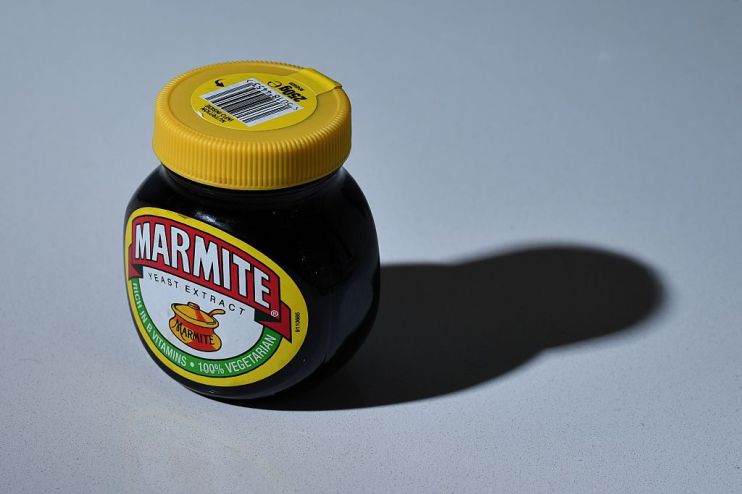Brexit vs. Business: Thanks to Covid-19, we’ll never know who was right

Let’s start with some good news: Unilever has put its faith in Britain.
The Dutch-Anglo consumer goods giant, owner of iconic brands from PG Tips to Marmite, announced on Thursday that it was unifying under its UK listing.
How times have changed. A mere 18 months ago, Unilever was trying to move its headquarters to Rotterdam. At the time, the attempted relocation away from London was branded a vote of no confidence in Brexit Britain.
Analysts then talked about the “uncertainty” and shifts in the “centre of gravity” that had pushed the company towards European soil, while Remainers tried to use the decision as an excuse for a second EU vote, with one MP calling it it “another sign of weakening business environment in Britain since the referendum”.
The turnaround this week, with London suddenly the consolidation hub of choice, has predictably been hailed as a British success story by Brexiteers.
“Who’s laughing now? Remainers wrong, yet again!” crowed the pro-Brexit Alliance of British Entrepreneurs on Twitter, while former Brexit Party MEP Michael Heaver rejoiced about “The Project Fear con job battered once again”.
“More good news,” tweeted Conservative MP Michael Fabricant. “This follows on from the announcement that Nissan will close its plants in the #EU and centre European production in Sunderland. #despiteBrexit”.
Fabricant should be wary of getting too excited over Nissan. Yes, the decision in May to close its Barcelona factory and keep its plant in Sunderland open, protecting 6,700 UK jobs, was seized on as another sign that fears about Brexit’s economic impact were overblown. But last October, Nissan’s concerns about its UK operation post-Brexit made it a pawn for Remainers.
And now the carmaker is warning that its Sunderland plant might not be sustainable after all if the UK leaves EU without a deal when the transition period expires at the end of this year.
So while confidence may be growing in some quarters, in others it is in short supply. On the same day as Unilever’s announcement, CBI director general Dame Carolyn Fairbairn issued an urgent warning: British businesses cannot cope with crashing out of the EU after the hit from Covid-19.
A no-deal Brexit on top of the unprecedented challenges of coronavirus would be like “setting the shed on fire” while the house was in flames, according to one CBI member.
There are two ways of looking at the Brexit debate in the context of the world-altering pandemic that has consumed political attention for the past three months.
The first, as articulated by Dame Carolyn, is that the situation for business is already so dire that any further shocks would be catastrophic. With an extra three million Brits applying for Universal Credit, a staggering nine million on furlough whose jobs are uncertain, and entire sectors from hospitality to travel facing existential challenges, why would the government even countenance adding to the burden?
But it is equally possible to make the opposite argument: that the economic impact of a high-disruption Brexit will be negligible compared to the seismic overhaul caused by Covid-19. And given how far-reaching and global that overhaul is, it is more important than ever that the UK has the flexibility and agility to chart its own course out of the pandemic and sign trade deals with other countries, without being distracted by endless rounds of EU negotiations.
Where both sides agree is that coronavirus is in another league to Brexit as far as shocks go.
According to “Project Fear” (that is, the leaflets sent out by the Treasury at David Cameron’s request before the referendum): “Britain’s economy could be tipped into a year-long recession… at least 500,000 jobs could be lost and GDP could be around 3.6 per cent lower”.
Well, the OECD has just forecast a UK GDP slump of 11.5 per cent thanks to coronavirus, six million jobs are at risk, and last month the Bank of England warned of the worst recession for 300 years.
Whatever happens with Brexit, it will now be virtually impossible to pinpoint its exact effect on the economy — especially when the EU is grappling with its own Covid challenges, as are each of the 27 member states.
Similarly, it is unwise to view the decisions of multinational corporations through a Brexit lens when coronavirus is far more pressing concern.
To go back to Unilever’s decision to unify in the UK, the board’s press release did not mention Brexit once. Rather, it noted that “the Covid-19 pandemic will create a business environment in which having as much flexibility and responsiveness as possible will be critically important”.
This is an unsatisfying outcome for “Remaniacs” and “Brextremists” alike, who both hoped that the data would in time validate their prognosis for how the UK would fare out of the EU. That data will now be so dwarfed by the Covid-19 tsunami that we will never know who was right.
Then again, if no one wins the argument, no one loses either. Both sides can claim victory — that being free from the EU helped Britain bounce back faster, or that we were hit even harder by the double Brexit-Covid whammy — and we can continue debating the economic impact of the referendum for all eternity.
It’s good to have something to look forward to.
Main image credit: Getty